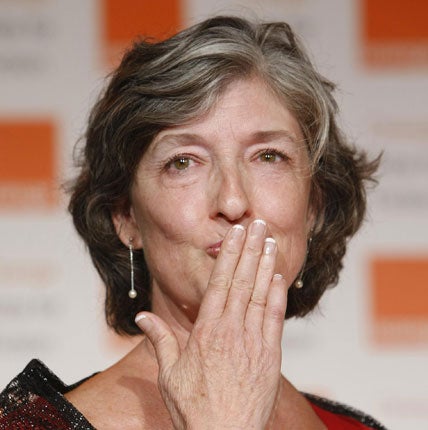Amy Jenkins: Does not understanding a book necessarily make it better?
Literature

He's good with words, that Peter Carey. No mincing. He says we're getting "dumber every day. We are really – literally – forgetting how to read". In fact, we're heading into a "deep, dumb future". And this from an author who is tipped to win the Booker this year for an unprecedented third time.
Carey used his speech at the close of the recent Sydney Writers' Festival to point out that we can learn a great deal from great fiction. A diet of junk culture and the untrained, lazy mind it produces actually threatens our democracy, in his view. For one thing, in the absence of rigorous debate about policy, the cult of the personality comes shining through. To illustrate this, Carey showed a YouTube clip of Sarah Palin fans queuing outside a book signing in Columbus, Ohio. The fans all think Sarah is great and want her to be president but when asked, they can't quite summon up any of her policies, not "right off the bat". Somehow they get the feeling that she stands for "America", though. What is troubling about this clip is not so much that they can't name a single policy of Palin's, it's that they don't think they need to. She's just good-looking and sexy and Alaskan and right wing and that'll do.
Then, this week, a more populist Australian author, Bryce Courtenay (author of The Power of One and seller of 15 million books) joined the fray. He labelled Carey's comments as "absolute bullshit", which was snappy enough. But then he said: "There's the assumption that just because you're a literary writer, therefore you are writing something of importance, of interest or entertainment or education or ability," which was a rather less digestible sentence.
Carey was attacking the celebrity memoirs clogging up the bestseller lists – rather than making any great claims for all that passes as "literary" these days – but still, despite his grammar, Courtenay has a point. Last week at Hay, Martin Amis was acerbic about the way unenjoyable books tend to win literary prizes. The less judges understand a book, the better they think it must be. I can't bear to think of some well-intentioned young woman hearing of Carey's comments and going out to buy – let's say – the winner of last week's Orange Prize. If, like me, she found her eye sliding off Barbara Kingsolver's impenetrable prose; if, like me, she found the complete lack of dramatic tension and the distant telescope the characters were viewed through off-putting; and if she then gave up literary novels as a bad job – that would be a shame.
This idea that there's a division between what is enjoyable and what is good is a terrible tendency. Good art is always enjoyable (even if it is dark and gruesome). The real literary greats are fabulous page-turners – think of Austen, Dickens, Forster, Fitzgerald, Hollinghurst – as "unputdownable" as any so-called commercial fiction. They are beautifully plotted and structured, so that you always want to know what happens next – and yet you learn all sorts of life lessons as you read.
Really, the whole idea of literary and not literary should be done away with. The question is rather: does a book make you think, does it broaden your horizons? And, most importantly, do we value the insights that books can bring? We wouldn't try to drive a car unless we'd taken some lessons first. I think we shouldn't try to live unless we've read some novels first. Carey calls on schoolteachers – who he thinks should be paid as much as investment bankers (wouldn't that be marvellous?) – to pass a love for Charles Dickens on to their students. Otherwise his terrifying "deep, dumb future" beckons.
Join our commenting forum
Join thought-provoking conversations, follow other Independent readers and see their replies
Comments